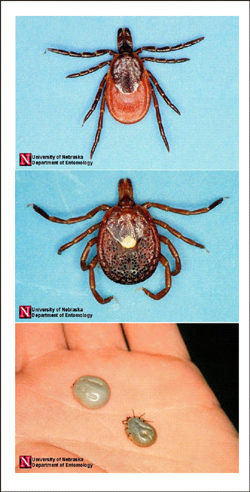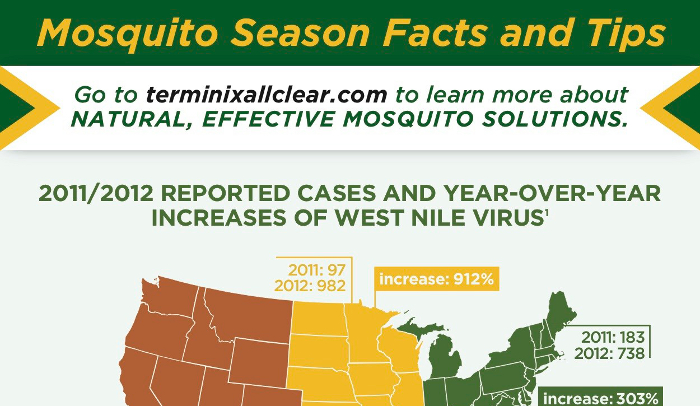
Jiggers, small insects which look like fleas, are the culprits in the epidemic which causes parts of the body to rot. Once inside a person’s body, they suck the blood, grow and breed, multiplying by the hundreds.

Nominate a female pharmacy professional to be one of our Women to Watch
When you eventually do feel them, however, they can be extremely itchy. There are thousands of different species of chiggers.
These marks are a reaction to the saliva used by the bug to numb the area while feeding. An allergic reaction to bed bug bites could increase swelling or cause hives near the surrounding area, mostly from excessive scratching. A popular myth about chiggers is that they burrow into the skin and remain there, but this is incorrect. When the chigger bites, it inserts its feeding structures and mouthparts into the skin.
Chiggers like to bite in folds of skin as well as places where clothing fits tightly. Most chigger bites occur around the ankles, waist, armpits, crotch, or behind the knees. Chiggers are tiny larvae members of the arachnid family and are sometimes called red bugs.

Affected body parts – buttocks, lips, even eyelids – rot away. Chiggers https://cryptolisting.org/ are tiny insects that leave very irritating, itchy bites.

Some chigger species are located in America, especially the Midwestern region and the Atlantic coast. If chigger larvae find its way into you, then you will be just fine.
A jigger infestation, known as tungiasis, can be very painful; I speak from personal experience. This tiny sand-flea has a variety of other colloquial names including nigua, chigoe and bicho de pé (Portugues for foot-bug). The last one, and its scientific name, Tunga penetrans, giving clues to its habit, as the adult female burrows into the skin, usually of the foot. The blood bed bugs suck out of you provides nourishment to them, whereas chiggers make a deadly error when they bite people.
Symptoms of chigger bites
The most effective way to avoid bedbugs and chiggers is to discover how to determine which is which so that you can remain out of their way. Regrettably, it is extremely hard to control both of chiggers and bed bugs.Chiggers are small, about 1/150 inch around and 1/50 inches long. They are not invisible, however one normally won’t notice them in brush or wooded areas. Bedbugs are not big at all, however they are huge in relation to chiggers, they are about 1/4 inch long.
Female sand fleas burrow into the skin, leaving just a tiny opening to the outside world through which it poops, breathes, and pushes out a creamy white fluid filled with eggs. Sufferers sometimes try to dig out the fleas using unsterilized instruments, leading to even more severe infections and sometimes death. Telling a bed bug bite apart from a flea or mosquito is impossible. Bed bug bites form red, swollen areas with dark red centers.
Health risks of chigger bites
They inject enzymes into the host skin that destroy the host tissue. The area then hardens, and a feeding tube, called a cyclostome, develops at the bite area. Chiggers can feed on the skin for a few days through this structure if they are not disturbed. Symptoms of chigger bites include intense itching and flat or raised red bumps on the skin.
Chigger habitat
CHIGGERS or ‘red bugs’ are the larvae of mites belonging to the trombiculidae family. In humans, chigger bites can cause intense itching and small reddish welts on the skin. When chiggers attack humans, they are not usually noticed for some time. Some people are bitten without ever forming any sort of red bumps on their skin. This does not mean you do not have a bed bug infestation.
- Chiggers and bed bugs are pests with bites that can make life miserable.
- Although both insects use human blood for sustenance, many key distinctions between the two exist.
- The most effective way to avoid bedbugs and chiggers is to discover how to determine which is which so that you can remain out of their way.
- Regrettably, it is extremely hard to control both of chiggers and bed bugs.Chiggers are small, about 1/150 inch around and 1/50 inches long.
- Bedbugs are not big at all, however they are huge in relation to chiggers, they are about 1/4 inch long.
- They are not invisible, however one normally won’t notice them in brush or wooded areas.
This has led some to believe that chiggers are invisible to the naked eye. If you just laughed while reading that, it is probably because you’ve seen hundreds or even thousands of these insects on you. When this happens, it can quickly chiggers or jiggers lead to panic, especially if you’ve tried jumping in the water to get them off only to realize this doesn’t work! Here are a few things you should know about chiggers if you’ve never had the misfortune of running into them.
Are there jiggers in the US?
Symptoms of chigger bites When the chigger falls off, you are left with reddish bumps. You may notice a bright red dot in the center — this is a remnant of the tube your skin formed in response to the chigger’s saliva. The bumps may look like welts, blisters, pimples, or hives.
Once chigger larvae have nestled into skin they release a digestive fluid that causes severe itching but nothing worse. After a short while, the chiggers fall out of people’s skin and onto the ground, where they complete their development.
One example would be the harmless arachnids that are commonly referred to as “chiggers”, which sounds similar in pronunciation to a sometimes-harmful flea known as “jiggers”. Jiggers are fleas that can burrow underneath a victim’s skin. Sometimes these fleas will burrow so deeply that the victim must have the jigger fleas removed surgically. However, chiggers are not even related to jiggers, and they are almost entirely harmless.
Traces of fecal matter near the edge of a mattress or suitcase or the remnants of white, oval-shaped eggs are also evidence of bed bugs. However, the strongest indicator of bed bugs in the home is discovery of the actual insect. But, there are still people like Marlene Thielecke, a PhD student in tropical medicine at Charite University Medicine in Berlin. Thielecke is interested in the sand flea, or Tunga penetrans, a parasite that plagues people living in the Caribbean, South America, and parts of Africa.
Although the larvae are extremely small in size, their bites pack a powerful punch. They’re so tiny that you probably won’t notice chiggers or jiggers when they jump from that tall blade of grass onto your skin. You won’t feel it as they hitch a ride right into your home.
Chiggers: Little Bugs with a Big Bite
But sometimes these common misunderstandings can lead to dangerous situations. For example, a dangerous bug’s name could sound like a harmless bug’s name when being pronounced.
One recent question was about the difference between jiggers and chiggers. The jigger, Tunga penetrans, also known as chigoe flea, is a parasitic https://cryptolisting.org/coin/cybr/ arthropod found in tropical and subtropical areas. It lives in soil and sand but feeds on warm-blooded hosts, including humans.
How do you get rid of chiggers?
Jigger, the most common name for Tungiasis, also known as the following: chigoe flea, jigger, pigue, nigua, pico, bi- cho de pie, bug of the foot, Tunga penetrans, T penetrans. Jigger is rare in the United States. The organism is easily identified if the physician is familiar with the clinical pre- sentation.
Bed bugs are egg-shaped, while chiggers mostly look like spiders. Neither of them carry any long-lasting consequences.
Are chiggers and jiggers the same thing?
The jigger, Tunga penetrans, also known as chigoe flea, is a parasitic arthropod found in tropical and subtropical areas. It lives in soil and sand but feeds on warm-blooded hosts, including humans. The eggs fall to the ground when ready to hatch, whereupon the flea dies. Chiggers have nothing to do with chigoe fleas.
The habitats, size and reproduction habits of bed bugs and chiggers are very different. Chigger bites themselves do not produce any long-term complications. However, because of the intense itching, prolonged scratching gcoin wallet may lead to skin wounds that may become infected by bacteria. Chiggers in North America are not known to carry any diseases, unlike some other arthropods. Many insects tend to bite exposed skin that’s easy to get to.
The breeding female flea burrows head first into the host’s exposed skin — often the feet, although any part of the body can be affected. The tip of the flea’s abdomen remains exposed to enable it to breathe and defaecate while feeding on the host’s blood. Several dozen eggs develop during the following two weeks. They can cause intense irritation (tungiasis), secondary infections, toe deformation and nail loss. The eggs fall to the ground when ready to hatch, whereupon the flea dies.
Chiggers and bed bugs are pests with bites that can make life miserable. Although both insects use human blood for sustenance, many key distinctions between the two exist.
Even though bed bugs could possibly carry for blood-borne illnesses following feeding on infected individuals, there is no evidence that bed bugs carry diseases of any kind. There are very few entomologists in the world, so it is understandable that some bugs get confused with others.
What does it look like when you have chiggers?
Jiggers are fleas that can burrow underneath a victim’s skin. Sometimes these fleas will burrow so deeply that the victim must have the jigger fleas removed surgically. However, chiggers are not even related to jiggers, and they are almost entirely harmless.
Skin Problems & Treatments Guide
Some dwell on land, and others dwell within aquatic environments. Chiggers can be predators, parasites, scavengers, and plant feeders. Parasitic chiggers can become parasitic on humans, but no species of chigger can cause serious symptoms that go beyond intense itching. Chigger larvae can penetrate people’s clothing and skin.
